2nd Official entry of HARPIA AERONAUTICS for the AJT Challenge
-----------------------------------------------
CONTROLS
AG1-AG2-AG3-AG4: Weapons Jettison
AG5: Chute Deploy
AG6: Anti-collision & Air-refueling lights
AG7: Landing/Taxi Lights
AG7 + VTOL DOWN: Flaps Extension
AG7 + TRIM DOWN: Arresting Hook extension
TRIM (without AG7) works as a simple trim tab
-------------------------------------------------------------
T/O PROCEDURE
-Trim tab MIDDLE
-VTOL tab at MIDDLE
-Throttle 100%
Aircraft will rotate automatically at T/O speed
-Gear UP
-Continue Flight
---------------------------------------------------------------
LDG PROCEDURE
-Throttle 14-18% depends on weight
-Airspeed below 250mph
-Gear DOWN
-AG7 – PRESS BUTTON (Mandatory for carrier LDG)
-Trim tab gradually at FULL DOWN
-VTOL tab gradually FULL DOWN
-Establish 5°-7° Nose UP attitude at 140-160mph airspeed
-Adjust Throttle for controlled Rate of Descend, Attitude<7° and Airspeed 140-160mph
-At TOUCHDOWN – THROTTLE 0% and AG5 for DRAG-CHUTE
-Apply FULL BRAKES (especially for carrier LDG) with ALL THE WHEELS ON GROUND
---------------------------------------------------------------------------
The T-36N Kestrel (N- stands for Naval) is a common production project aircraft between HARPIA DS and Boeing in order to compete for the upcoming NT-X program of the US Navy. The NT-X program has been established to enable the United States Navy to buy a new two-seat jet trainer for fast-jet training to replace the T-45 Goshawk.
Besides NT-X, both Boeing and HarpiaDS decided to officially enter with the T-36 in the Advance Jet Trainer Challenge presenting an aircraft oriented to fulfill the fighter training role of modern naval aviation.
The T-36N Kestrel has been designed for carrier operations and incorporates numerous modifications to make it suitable for use on carriers with STOBAR (Short Take-Off But Arrested Recovery) systems and catapult-assisted take-off but with arrested recovery (CATOBAR), both used for the launch and recovery of aircraft from the deck of aircraft carriers. The designing provisions include improvements to the low-speed handling characteristics and a reduction in the approach speed. Modifications were designed by Boeing in USA and carried out by HarpiaDS in its main factory unit in Kansas. Strakes were also added on the upper wing to improve airflow. Other design features include a strengthened airframe, more robust and wider landing gear with catapult tow bar attachment, an arresting hook, a two-wheel nose landing gear, narrow upper-wing airbrakes for AoA landings, a slashed tailfin with wide edges and high-lift flap mechanism.
The T-36N Kestrel is the new Advanced Jet Trainer (AJT) candidate aircraft and includes modern LCD displays instead of conventional instrumentation and is powered by two Rolls-Royce Adour 951NG engines mounted on strengthened sponsons which house the landing gear and the two 0.22 DEFA canons.
The Kestrel was designed to be maneuverable and can reach Mach 0.86 in level flight and Mach 1.10 in a dive, thus allowing trainees to experience transonic flight before advancing to a supersonic trainer and the airframe is very durable and strong, stressed for +9 g. A dual hydraulic system supplies power to operate systems such as the aircraft's flaps, airbrakes and landing gear, together with the flight controls. A ram air turbine is fitted in wing roots to provide backup hydraulic power for the flight controls in the event of an engine failure, additionally two gas turbine auxiliary power units are housed directly above the engine.
The design of the fuselage includes a height differential between the two seats of the cockpit; this provided generous levels of visibility for the instructor in the rear seat. Air is fed to the aircraft's lower-fuselage-mounted Rolls-Royce Turbomeca AdourNG engines via intakes on the forward section of the engines’ sponsons. During the aircraft's development, Harpia’s Aerospace Engine Division worked closely with Rolls-Royce to reduce the engine's fuel consumption, to ensure a high level of reliability and to expand the engine’s operating parameters through a sophisticated FADEC system. The T-36 with the new Adour 951NG engines is able to fly up to 3hrs only using the inner fuel tanks.
The Kestrel is designed to carry two centerline-mounted armaments, such as the AGM-84H/K SLAM-ER (Standoff Land Attack Missile-Expanded Response) precision-guided, air-launched cruise missile or the AM-39 Exocet BlkIII anti-ship missile, four under-wing pylons for fitting armaments (such as AMRAAMs and ASRAAMs air-to-air missiles or JDAM/JSOW ordinance) and two wingtip mounted hardpoints for air-to-air missiles like the AIM-9X Sidewinder missile. Also, the T-36 is equipped with an air-refueling receptacle boom which can drastically increase its operational range and endurance and train cadet pilots to air-refueling procedures.
In recent talks with possible export customers, Boeing and HarpiaDS were studying the development of a so-called 'Combat Kestrel', potentially equipping it with a new slotted wing, additional sensors and weapons, a head-mounted display, and a single large-screen weapons management display in the forward cockpit.
This two-seat advanced trainer is equipped with additional avionics, an optional forward looking infrared system mounted behind the nose wheel, HOTAS and glass cockpit and is capable of training not only fighter pilots but also Weapons Systems Operators (WSO) and Radar Interception Officers (RIO) for modern specialized military multi-crew platforms.
The T-36N Kestrel is under examination for purchase from the Italian Navy (Marina Militare) for training the new age of fighter pilots of the ordered F-35B aircrafts for use in the new Cavour aircraft carrier.
-----------------------------------------
Many regards to @DestinyAviation for his Lc-45B aircraft that I used as testbed for fuselage development and heavily influenced my general design.
Specifications
Spotlights
- hopotumon 8.1 years ago
- mikoyanster 8.2 years ago
- Mumpsy 8.2 years ago
General Characteristics
- Predecessor Advanced Jet Trainer Challenge [FINISHED]
- Successors 1 airplane(s)
- Created On Windows
- Wingspan 37.0ft (11.3m)
- Length 45.2ft (13.8m)
- Height 17.1ft (5.2m)
- Empty Weight 10,289lbs (4,667kg)
- Loaded Weight 16,781lbs (7,612kg)
Performance
- Power/Weight Ratio 0.401
- Wing Loading 50.4lbs/ft2 (246.2kg/m2)
- Wing Area 332.8ft2 (30.9m2)
- Drag Points 8510
Parts
- Number of Parts 251
- Control Surfaces 11
- Performance Cost 929

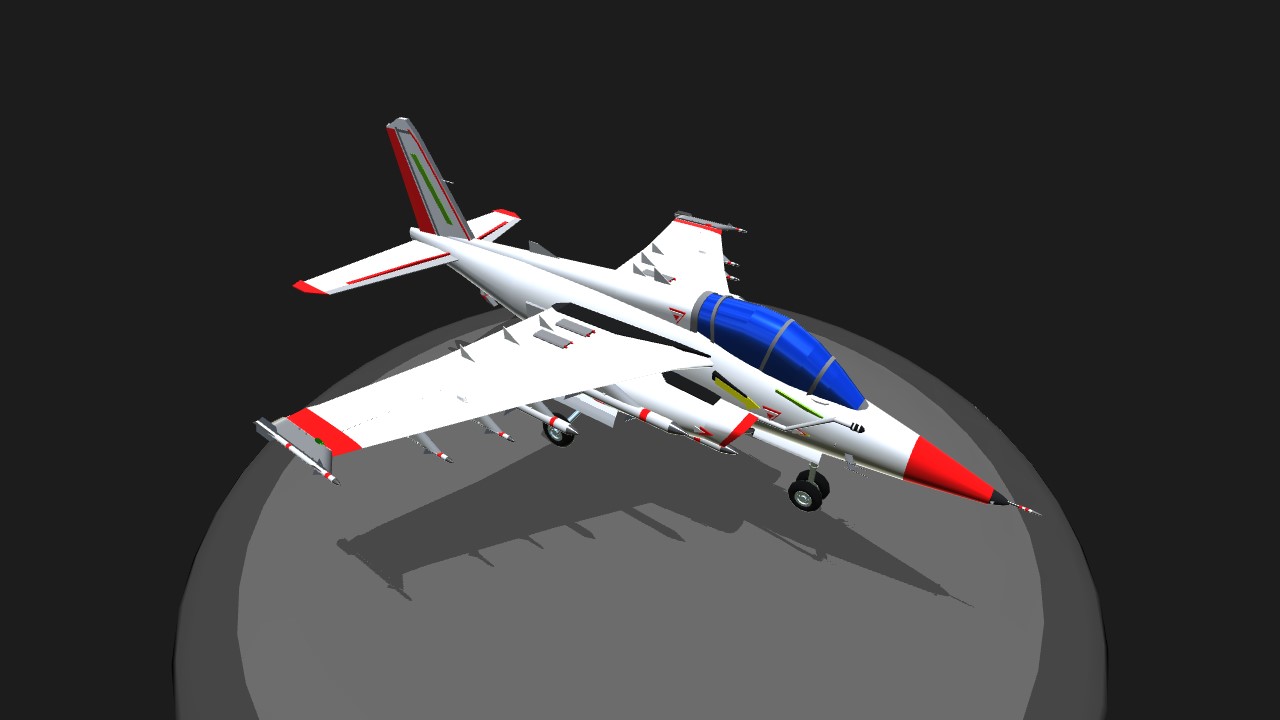
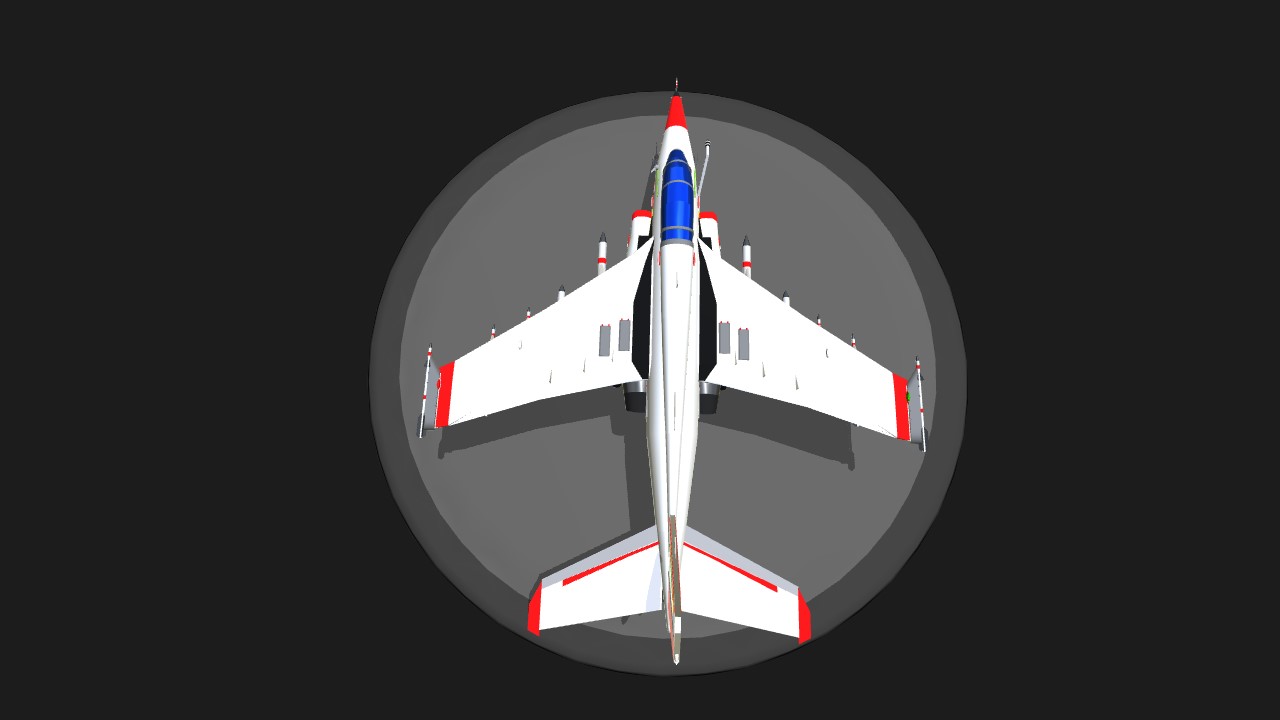
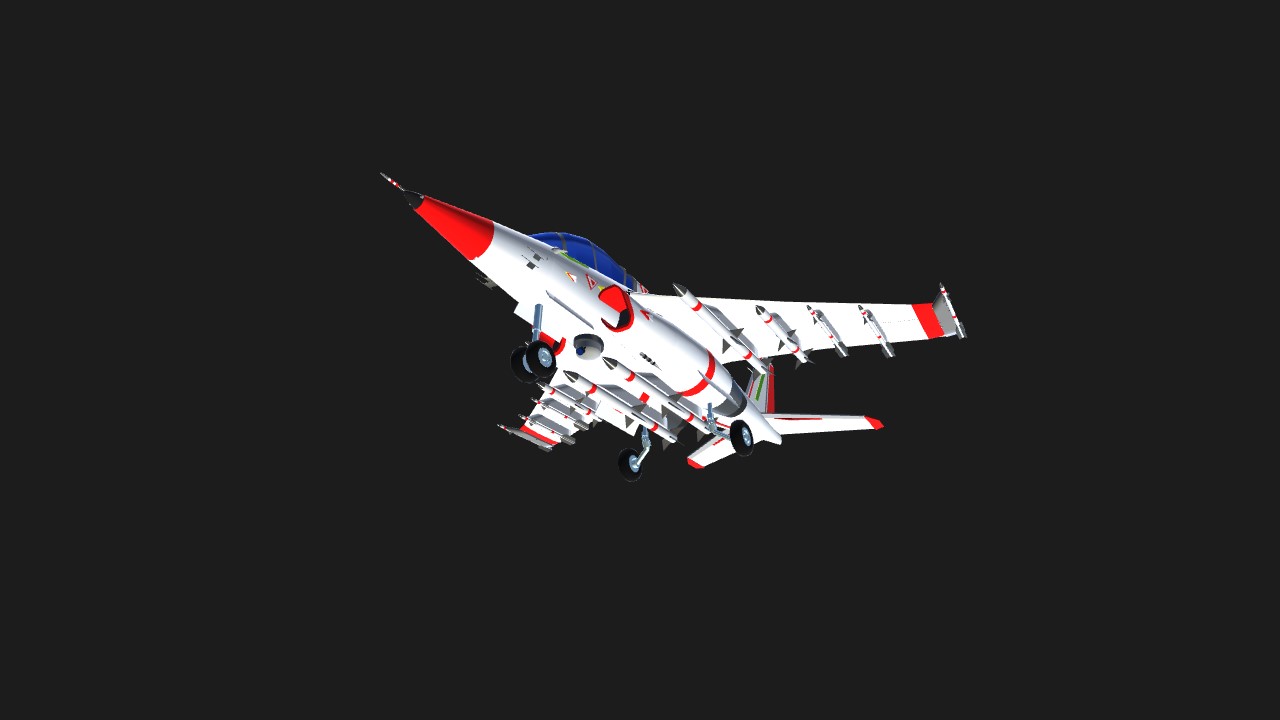
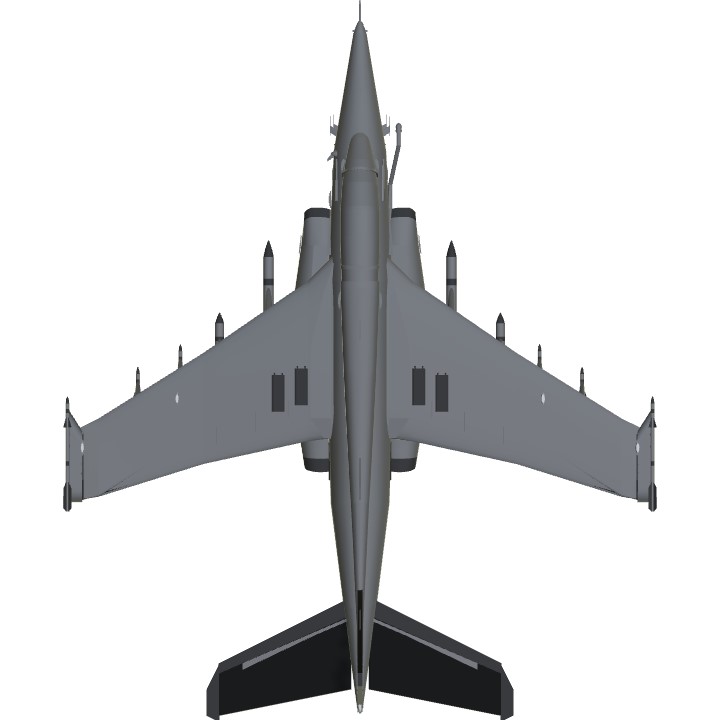
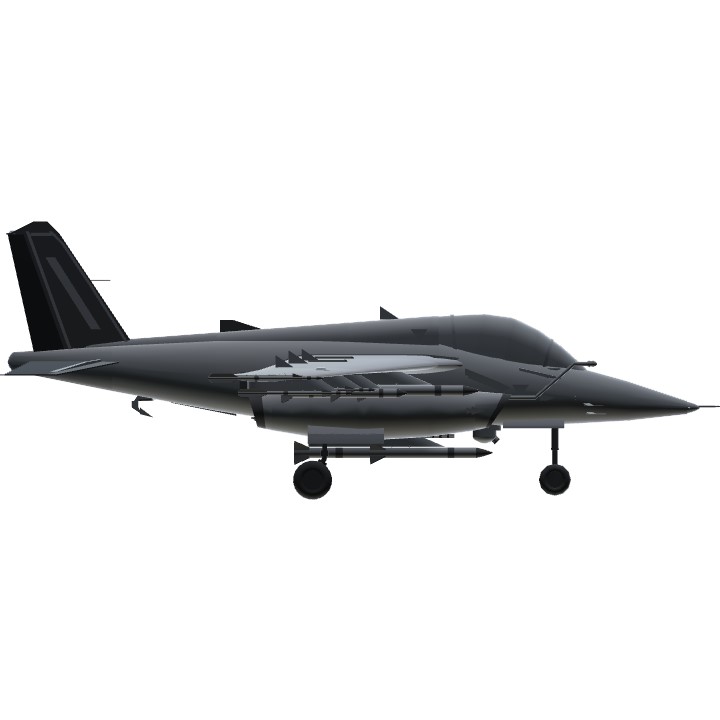
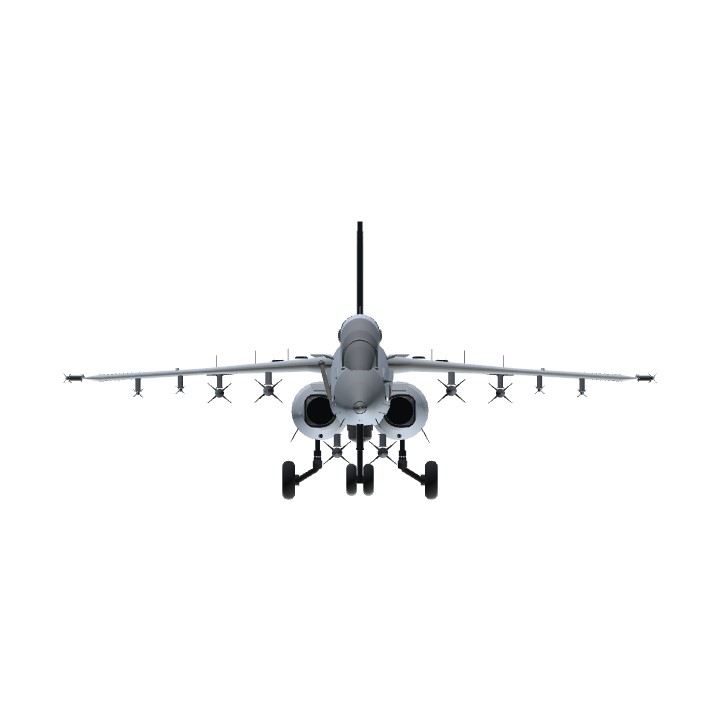
Advanced Jet Trainer Challenge just begun!!
Updated results of the first phase. Check it now!
@mikoyanster Thank u a lot! See u at next round!
1st Phase
Status :: Proceed to the next phase. Ok.
Maneuverability :: 7
Stability and control at low speed :: 9
Aesthetics and realistic model :: 10
Details and accessories :: 3
Extra points :: 0
Total :: 29
Oh okay! @Dimkal
@TTHHSSSS Pls read my detailed description again. In the bottom line Im refering to DestinyAviation. If u check my other aircrafts (C-52, CV-26, F-64, etc) u will see that I ALWAYS give credits to other designers for everything I use (weapons, fuselage, etc)!!!
Yeah I totally agree @DestinyAviation
No, keep it in. I just noticed all the similarities and jumped to a conclusion. @Dimkal
@DestinyAviation I am referring to you at my description. Pls check again. I only got influenced by your fuselage, all other parts are new and designed by me. If you feel violated I can withdraw it from challenge.
I agree. I think that s/he may have added more to the wings and other areas to give it a different appearance. All I'm saying is that I really don't like my stuff being copied. I've had it done to me before and it really sucks. @TTHHSSSS
Yeah, they are super similar.. I compared them side by side in the editor yet I don't know.. different engines, wings, inlets, and complete different performance. They are uncannily similar. @DestinyAviation
I think this is heavily based off of (maybe copied) an airplane I made. I think you might have saved it as a subassembly and then used it for the challenge. If you did copy, please don't lie about it. I'll try to put a picture here so that others can see the comparison. Picture:
Here: !.
@Dimkal Well deserved. Great detailing BTW.
@Potkuri I like to create backstory for my planes and giving details about the operational status!
@Mumpsy Thank you my friend. I really appreciate your comment!
What a plane, what a description!
She is a beauty. Nice work.